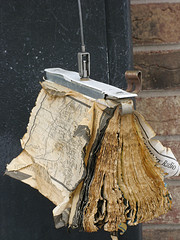| Sun | Mon | Tue | Wed | Thu | Fri | Sat |
|---|---|---|---|---|---|---|
| 1 | 2 | 3 | 4 | 5 | ||
| 6 | 7 | 8 | 9 | 10 | 11 | 12 |
| 13 | 14 | 15 | 16 | 17 | 18 | 19 |
| 20 | 21 | 22 | 23 | 24 | 25 | 26 |
| 27 | 28 | 29 | 30 | 31 |
CATEGORIES
RECENT ENTRIES
BLOG ROLL
The write way
“How do you teach something that is an art form?” asked Elizabeth Crane, a short-story writer and a creative-writing faculty member at the University. The question set the tone for a panel discussion Tuesday evening featuring some of the city's most prominent authors.
 Two dozen students, professors, and visitors gathered in Classics 110 for the event. The participants were Crane; Aleksandar Hemon, author of two critically acclaimed novels and regular contributor to magazines such as the New Yorker; and Stuart Dybek, known as an expert short-story craftsman, winning a PEN/Malamud Prize for distinguished achievement and an O. Henry award. The three writers have been tag-team teaching an invitation-only seminar for ten advanced fiction writers at the U of C this quarter.
Two dozen students, professors, and visitors gathered in Classics 110 for the event. The participants were Crane; Aleksandar Hemon, author of two critically acclaimed novels and regular contributor to magazines such as the New Yorker; and Stuart Dybek, known as an expert short-story craftsman, winning a PEN/Malamud Prize for distinguished achievement and an O. Henry award. The three writers have been tag-team teaching an invitation-only seminar for ten advanced fiction writers at the U of C this quarter.
The conversation fluctuated between their methods of teaching writing and their own writing practices. Hemon noted, "You cannot approach it as, 'I'm an expert and these are what my tricks are.'" But the authors did agree that reading—observational, voracious, and broad—is essential to becoming a good writer. Hemon seeks out everything from Nabakov and Chekhov to names in phonebooks and nutritional information on the backs of cereal boxes. "I like the Yellow Pages," he said.
After a few audience questions that prompted the writers to explore associations between academia and creative writing, they explicated how they saw their own work in relation to their readership. "Reading is like dancing," said Dybek, who noted that, aside from popular musicians, writers have the most active audience of any art form. He offered an example: a student writing a dissertation chapter on Dybek's story "Blood Soup" read transubstantiation into the Miracle Whip jar full of holy water that the protagonist empties out. His dying grandmother urges him to empty it and embark on a quest for duck's blood to give to her. Dybek claimed he didn’t intend to make such a connection to the miraculous in the story, "but if I make things specific enough, then a great reader like that will be able to dance with it."
Rose Schapiro, '09
May 8, 2009
